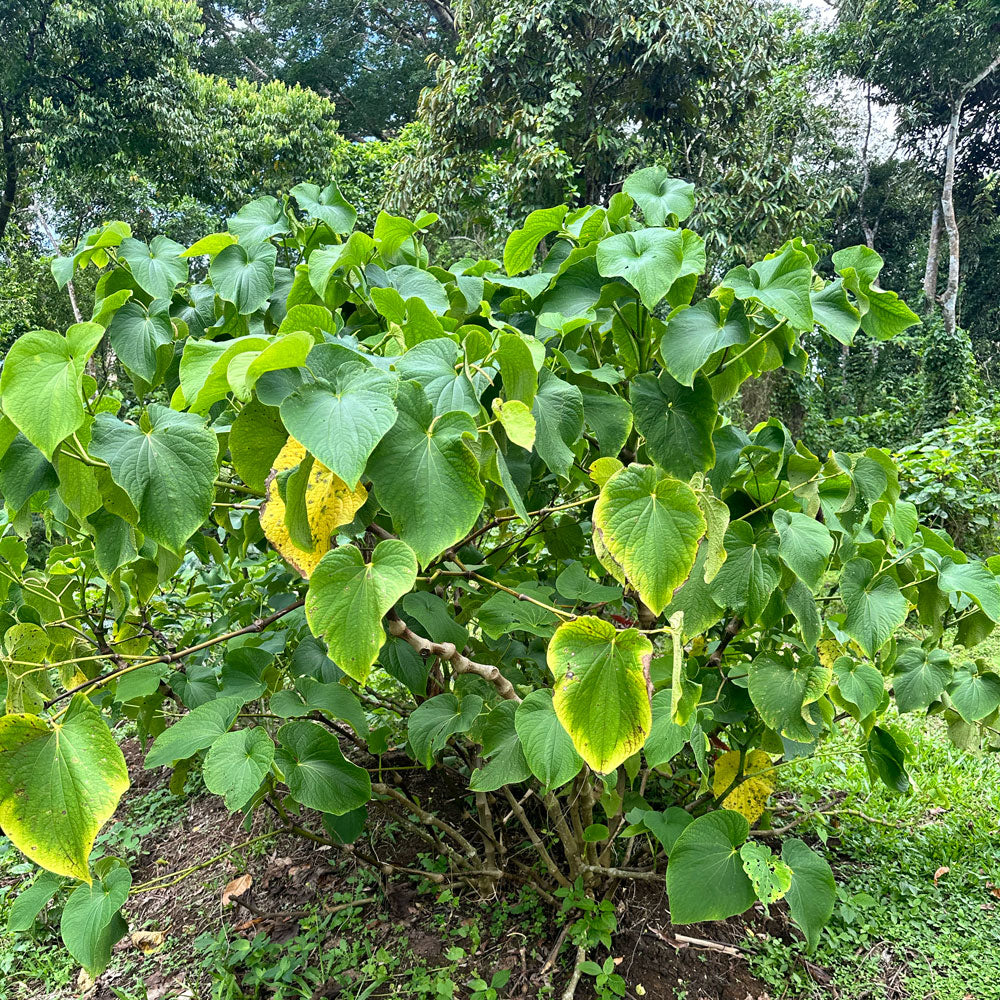

What is Kava? A Beginners Guide to this Ancient Pacific Drink
Did you know? Happy people have been enjoying kava for over 3,000 years! Originating in the Melanesian islands of Vanuatu, this beloved beverage has become the cornerstone of many South and North Pacific Island cultures.
So, What Exactly Is Kava?
Kava is a drink made from the root of piper methysticum, a plant in the pepper family. It’s packed with kavalactones, natural compounds that interact with your GABA receptors, increasing dopamine levels and delivering a calming, euphoric effect.
A Sacred Thread of Pacific Culture
Kava holds a deeply sacred and central place in many Pacific cultures. It is far more than a drink, it is an expression of identity, heritage, and connection. Across the Pacific, each island nation has its own customs and protocols, shaped by centuries of tradition and reverence.
In Tonga, kava plays an essential role in formal and ceremonial life. The 'faikava' is a gathering marked by order, storytelling, and social bonding, while kava ceremonies are integral to significant occasions such as royal installations, weddings, and funerals.
In Fiji, kava, or yaqona, is typically shared in a circle known as a sevusevu. It is customary to present kava to the village chief before any important discussions begin. Protocol includes clapping once before drinking, and three times afterward, often accompanied by a hearty “Bula!” a word of welcome, life, and good health.
In Samoa, the 'ava ceremony is a formal and ritualised event, often held during chiefly installations and other important gatherings. A high-ranking person is served first, following a short oration. Before drinking, a small amount of the 'ava is poured onto the ground, an offering of respect to the land and ancestors.
In Vanuatu, regarded by many as the ancestral home of kava, it is traditionally consumed in nakamal (kava houses or bars). The drink is taken in silence, with deep respect. After drinking, it’s customary to spit to cleanse the palate, reflecting the grounding and contemplative nature of the experience.
Across these islands, there is no single “correct” way to drink kava. Each culture has its own unique practices, shaped by history, spirituality, and community life. But what unites them is a shared respect - for the plant, the traditions, the land, and each other. Kava is always about more than consumption: it is about slowing down, being present, and fostering connection.
The Traditional Touch
Kava has long been a remedy for anxiety and a gateway to a sense of calming peace. In many Pacific languages, there’s even a special word for the feeling it creates: "fakalata"—the enjoyment and contentment of place.
Traditional kava preparation is an art form. The root is harvested, cleaned, peeled, and either pounded or ground before water is added. The ground-up root is placed in plant fibres (palm, panadanus) and kneaded in the water.
What Does Kava Taste Like?
Dirt. That’s the honest truth. Some might dress it up as “muddy water,” but at the end of the day, it’s earthy and peppery. The flavour varies depending on the kava cultivar and the ratio of rhizome to waka (root fibres). That said, our carefully curated kavas are smooth and mild, perfect for newcomers and connoisseurs alike.
Is Kava Alcoholic?
Nope! In fact, kava is more like the anti-alcohol. While alcohol can agitate and divide, kava promotes a sense of well-being, connection, and harmony. Plus, it’s made from a plant, not fermented yeast!
How to Drink Kava
Kava isn’t for sipping. Instead, scull it like a pro. Start with 150-200ml on
an empty stomach and follow with a chaser if needed (we recommend a splash of kombucha), fresh fruit is also good.
What Are the Effects?
After a shell (traditional kava serving), you’ll first notice a tingling or numbing sensation on your lips and tongue. Within 10 minutes, a wave of euphoria sets in. With each shell, this buzz deepens into a warm, peaceful embrace the fakalata stage. Aim for three or more shells to fully unlock kava’s magic.
The Benefits of Kava
- Non-alcoholic & low-calorie: A healthier way to socialise.
- Quick metabolism: Kava leaves your system within hours.
- No hangovers: Wake up refreshed after a night of kava.
- Relaxation & better sleep: A natural way to unwind.
Kava is more than a drink, it’s a cultural tradition and a pathway to peace, connection, and joy.